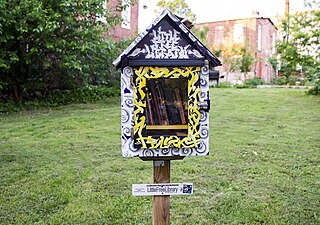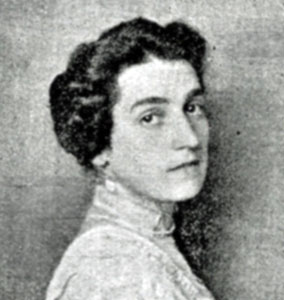Related Research Articles
The Austrian School is heterodox school of economic thought that advocates strict adherence to methodological individualism, the concept that social phenomena result primarily from the motivations and actions of individuals and their self interest. Austrian school theorists hold that economic theory should be exclusively derived from basic principles of human action.

Friedrich August von Hayek, often referred to by his initials F. A. Hayek, was an Austrian-British economist and political philosopher who made contributions to economics, political philosophy, psychology, intellectual history, and other fields. Hayek shared the 1974 Nobel Memorial Prize in Economic Sciences with Gunnar Myrdal for work on money and economic fluctuations, and the interdependence of economic, social and institutional phenomena. His account of how prices communicate information is widely regarded as an important contribution to economics that led to him receiving the prize.

The sociology of knowledge is the study of the relationship between human thought, the social context within which it arises, and the effects that prevailing ideas have on societies. It is not a specialized area of sociology. Instead, it deals with broad fundamental questions about the extent and limits of social influences on individuals' lives and the social-cultural basis of our knowledge about the world. The sociology of knowledge has a subclass and a complement. Its subclass is sociology of scientific knowledge. Its complement is the sociology of ignorance.

Alfred Schutz was an Austrian philosopher and social phenomenologist whose work bridged sociological and phenomenological traditions. Schutz is gradually being recognized as one of the 20th century's leading philosophers of social science. He related Edmund Husserl's work to the social sciences, using it to develop the philosophical foundations of Max Weber's sociology, in his major work Phenomenology of the Social World. However, much of his influence arose from the publication of his Collected Papers in the 1960s.
Methodenstreit, in intellectual history beyond German-language discourse, was an economics controversy commenced in the 1880s and persisting for more than a decade, between that field's Austrian School and the (German) Historical School. The debate concerned the place of general theory in social science and the use of history in explaining the dynamics of human action. It also touched on policy and political issues, including the roles of the individual and state. Nevertheless, methodological concerns were uppermost and some early members of the Austrian School also defended a form of welfare state, as prominently advocated by the Historical School.

Ludwig Maurits Lachmann was a German economist, economic theorist and important contributor to the Austrian School of Economics. Lachmann, Israel Kirzner, and Murray Rothbard were the three primary catalysts of the Austrian 'revival', beginning in 1974. He wrote on economic theory, history, and methodology, as well as on the application of Hermeneutics to economic thought, in order to interpret economic phenomena.

The Vienna Circle of logical empiricism was a group of elite philosophers and scientists drawn from the natural and social sciences, logic and mathematics who met regularly from 1924 to 1936 at the University of Vienna, chaired by Moritz Schlick. The Vienna Circle had a profound influence on 20th-century philosophy, especially philosophy of science and analytic philosophy.
The Chicago school of economics is a neoclassical school of economic thought associated with the work of the faculty at the University of Chicago, some of whom have constructed and popularized its principles. Milton Friedman, and George Stigler are considered the leading scholars of the Chicago school.
The Mont Pelerin Society (MPS) is a classical liberal international organization composed of economists, philosophers, historians, intellectuals and business leaders. The society advocates freedom of expression, free market economic policies and the political values of an open society. Further, the society seeks to discover ways in which the private sector can replace many functions currently provided by government entities.

The Road to Serfdom is a book written between 1940 and 1943 by Austrian-British economist and philosopher Friedrich Hayek. Since its publication in 1944, The Road to Serfdom has been popular among liberal and conservative thinkers, and remains referenced in modern discourse. It has been translated into more than 20 languages and sold over two million copies. The book was first published in Britain by Routledge in March 1944, during World War II, and was quite popular, leading Hayek to call it "that unobtainable book", also due in part to wartime paper rationing. It was published in the United States by the University of Chicago Press in September 1944 and achieved great popularity. At the arrangement of editor Max Eastman, the American magazine Reader's Digest published an abridged version in April 1945, enabling The Road to Serfdom to reach a wider non-academic audience.
Spontaneous order, also named self-organization in the hard sciences, is the spontaneous emergence of order out of seeming chaos. The term "self-organization" is more often used for physical changes and biological processes, while "spontaneous order" is typically used to describe the emergence of various kinds of social orders in human social networks from the behavior of a combination of self-interested individuals who are not intentionally trying to create order through planning. Proposed examples of systems which evolved through spontaneous order or self-organization include the evolution of life on Earth, language, crystal structure, the Internet, Wikipedia, and a free market economy.

The Wiener Moderne or Viennese Modernism is a term describing the culture of Vienna in the period between approximately 1890 and 1910. It refers especially to the development of modernism in the Austrian capital and its effect on the spheres of philosophy, literature, music, art, design and architecture.

Ludwig Heinrich Edler von Mises was a Ukraine-born Austrian–American Austrian School economist, historian, logician, and sociologist. Mises wrote and lectured extensively on the societal contributions of classical liberalism and the power of consumers. He is best known for his work on praxeology studies comparing communism and capitalism.

"The Use of Knowledge in Society" is a scholarly article written by economist Friedrich Hayek, first published in the September 1945 issue of The American Economic Review.

The Deutschvölkischer Schutz- und Trutzbund was the largest and the most active antisemitic federation in Germany after the First World War, and an organisation that formed a significant part of the völkisch movement during the Weimar Republic (1918–1933), whose democratic parliamentary system it unilaterally rejected. Its publishing arm issued books that greatly influenced the opinions of Nazi Party leaders such as Heinrich Himmler. After the organisation folded in around 1924, many of its members eventually joined the Nazis.

The Nobel Memorial Prize in Economic Sciences, officially the Sveriges Riksbank Prize in Economic Sciences in Memory of Alfred Nobel, is an economics award funded by Sveriges Riksbank and administered by the Nobel Foundation.
An index list of articles about the philosophy of science.

Ernestine von Fürth, née Kisch was an Austrian-Jewish women's activist, a founding member of the "Neuen Wiener Frauenklub", chairwoman of the Austrian women's suffrage committee, and editor for the "Zeitschrift für Frauenstimmrecht" in Austria.

Miroslav Tyrš was a Czech philosopher, art historian, sports organizer and together with Jindřich Fügner the cofounder of the Sokol movement.
References
- ↑ Herbert Furth Biographical Sketch, M. E. Grenander Department of Special Collections & Archives / University Libraries / University at Albany / State University of New York
- ↑ UCLA Oral History 1978 Interviews with Friedrich Hayek, pp. 32-38
- ↑ Peter Kurrild-Klitgaard: "The Viennese Connection: Alfred Schutz and the Austrian School".